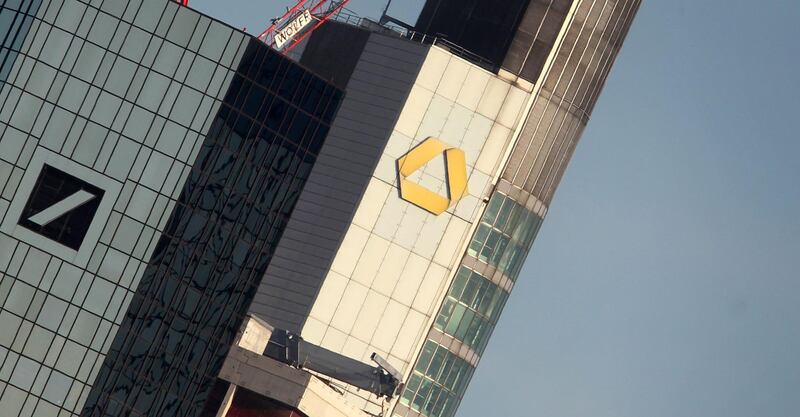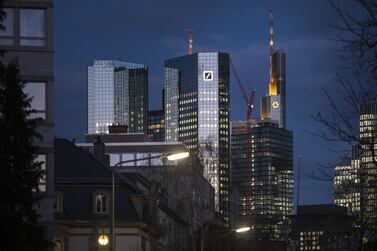Deutsche Bank and Commerzbank ended talks on a historic tie-up, throwing the future of both lenders into question after failed turnaround plans.
The two lenders decided that attempting to integrate the two banks would be too difficult to execute and also cited the restructuring costs and additional capital requirements, according to a statement on Thursday.
"After thorough analysis, we have concluded that this transaction would not have created sufficient benefits" to justify the risks and costs of the complex deal, Deutsche Bank chief executive Christian Sewing and Commerzbank chief Martin Zielke said in a statement.
"After careful analysis, it became apparent that such a combination would not be in the interests of either bank's shareholders or other stakeholders."
The failure to agree on a deal now forces Deutsche Bank, once Europe’s dominant financial institution, to come up with its fifth turnaround plan since 2015 and allay investor concern about how it will revive growth and boost shareholders returns, according to Bloomberg. For Commerzbank, still 15 per cent-owned by the federal government, a foreign takeover may be in the cards down the road, with lenders including ING Groep and UniCredit said to be interested in an acquisition.
"Globally active German industry needs competitive banks that can accompany them across the world," German Finance Minister Olaf Scholz’s reiterated ont Thursday.
But he acknowledged that mergers or other forms of cooperation "only make sense if the business case adds up and if they're headed towards a dependable business model".
Deutsche Bank and Commerzbank have been in talks about a takeover since mid-March but have since faced severe opposition from labour representatives and strong criticism from key shareholders. The German lender is already working on a Plan B that it can present to shareholders once talks officially end, according to sources.
Deutsche Bank remains one of the most systemically critical banks in the world - with assets of about $1.5 trillion - underscoring Mr Scholz’s desire to reverse the erosion of its franchise. But labour unions vehemently opposed the loss of jobs from a takeover of Commerzbank and policymakers across the spectrum distanced themselves from Mr Scholz. Large shareholders such as BlackRock have questioned the logic of a deal.
The talks were a desperate effort to strengthen two lenders whose shares had lost more than 90 per cent of their value from their peak, and to shore up a domestic banking industry that has fallen far behind Wall Street.
Both lenders are struggling with the fallout from an aggressive expansion that ended with the financial crisis. While DeutscheBank survived that crash without direct aid, it paid more than $18 billion in misconduct fines in the last decade. Commerzbank was bailed out after it bought Dresdner Bank from insurer Allianz in 2008, two weeks before the collapse of Lehman Brothers.
Continued negative interest rates, a fragmented European banking market, and cutthroat competition at home added to their woes.
Deutsche remains exposed to possible legal risks, including a Russian money laundering scandal, and both lenders are battling an environment of low interest rates and intense competition at home in Germany, according to AFP.
"The negative side effects of such a merger could be substantial, creating a bank that is too systemic to fail and too complex to manage," Isabel Schnabel of the government's Council of Economic Experts wrote in the Financial Times earlier this month.
On the same day the dicussions ended, Deutsche said it expects first-quarter pretax earnings would amount to about €290m, exceeding expectations of €260m, but lagging the €432m posted in the year-earlier period, Reuters reported.
Revenues are expected to be €6.4 billion, including €3.3bn in the Corporate & Investment Bank, with costs down to €5.9bn and a Common Equity Tier 1 ratio of 13.7 per cent at the end of the quarter, the bank said.
The bank is due to report detailed first-quarter earnings on Friday.







